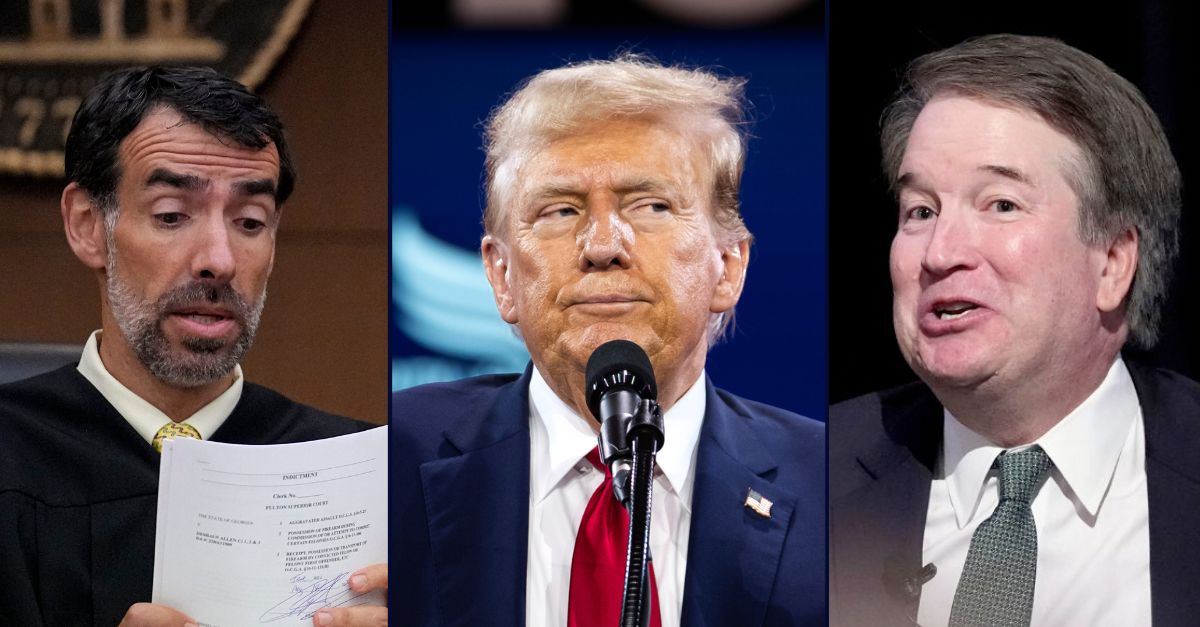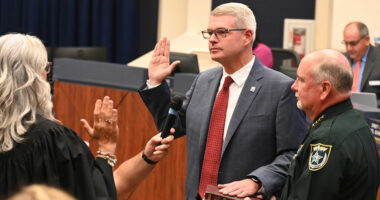
Left: Fulton County Superior Court Judge Robert McBurney looks at documents, Monday, Aug. 14, 2023, in Atlanta (AP Photo/Brynn Anderson). Center: Donald Trump speaks at the annual Road to Majority conference in Washington, DC, in June 2024 (Allison Bailey/NurPhoto via AP). Right: Supreme Court Justice Brett Kavanaugh answers questions during a judicial conference, Friday, May 10, 2024, in Austin, Texas (AP Photo/Eric Gay).
A judge in Georgia late Wednesday put the kibosh on a recent change to Peach State election law engineered by allies of Donald Trump.
And part of the justification for the pause cited by the court was the still-fresh memory of the Jan. 6 attack on the U.S. Capitol.
“[T]he public interest is not disserved by pressing pause here,” Fulton County Superior Court Judge Robert McBurney wrote in the order. “This election season is fraught; memories of January 6 have not faded away, regardless of one’s view of that date’s fame or infamy. Anything that adds uncertainty and disorder to the electoral process disserves the public.”








